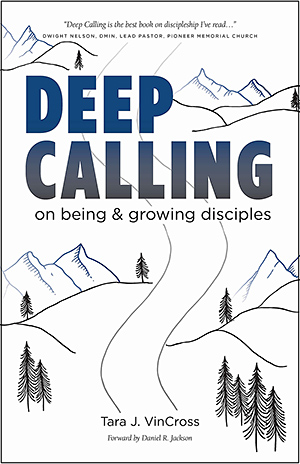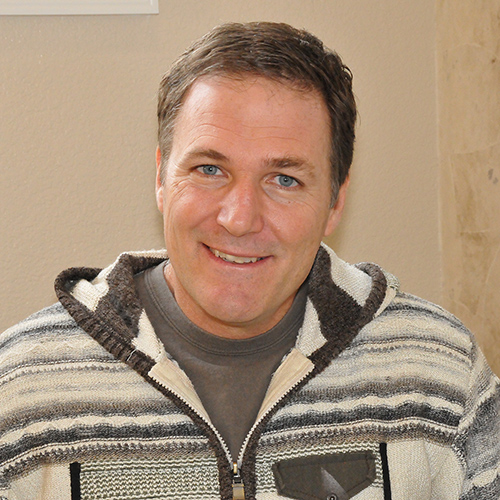Book Review: Deep Calling: On Being & Growing Disciples

Deep Calling: On Being & Growing Disciples by Tara J. VinCross. AdventSource. Lincoln, NE. 2020. Total pages: 232.
After Tara VinCross completed her doctor of ministry degree at Andrews University, she continued to utilize, shape, revise, and apply her research on spiritual growth. As the senior pastor of the Azure Hills Church in Southern California, she provided small groups with this resource for discipleship. Five years since her graduation, this revised, revised, and revised again version has become a resource for not only her church members, but for others as well.
In addition to the book, you may obtain a box that includes a curriculum for small groups and some journals for the journey. But before you automatically go online to purchase this, read some more about the content.
If you grew up in the church or who accepted Christ as Savior sometime in the past, you experienced Jesus as Savior. But what about Jesus as Lord? What does that mean? Is it a matter of being good? Evangelizing others? Getting highly involved in church activities? Using God-talk more frequently? VinCross sees discipleship as the journey of increasing intimacy with Jesus as both Savior and Lord. Instead of achieving human levels of religious accomplishment, abiding with Christ functions as the mantra. This is more about process than content; more about the journey than some imaginary destination.
Tara includes both personal illustrations and pithy quotes while presenting what discipleship is. About halfway through the book she focuses on a pattern for growing as a disciple of Christ. This includes “eight calls” by God, namely, a call to devotion, to prayer, to rest, to community, to healing, to witness, to serve, and to bless.
Without giving a full discourse of each call, let this whet your appetite for a full meal by adding a bite-sized taste for each call.
The call to devotion involves an intentional abiding in Christ through regular infusions of God’s word as a personal message that leads to devotion and joy, as well as hope.
The call to prayer is a call to a conversation with God rather than a want list or pedantic routine. The author explains several different methods and topics for prayer, including the rarely tried “listening” during prayer.
The call to rest might resonate with Seventh-day Adventists because of Sabbath, but frequently Adventists find Sabbath to be their busiest day rather than a day of true rest. This might necessitate a change for Sabbath to be more about worship and restoration than hyper activity.
The call to community goes beyond feel-good koinonia to doing life together and growing through the thick and thin of it. This means both support and accountability; learning to praise as well as to forgive. Community offers a place to belong and a fertile venue for change to restore and/or to grow.
The call to healing acknowledges our brokenness as well as the expectation that, because of God’s acceptance of us and power to heal, we are also conduits to receive and to pass along healing to others.
The call to witness has more to do with telling our story rather than memorizing someone else’s story. That’s when evangelism functions as life rather than a moment in life. This requires that we understand and appreciate what God has done and is doing in our lives so we even know what, how, where, and with whom to share our story.
The call to serve continues the ministry of Jesus through us, just as he did through those 12 disciples some 2,000 years ago. Because of the active Holy Spirit in our midst and in our lives, the incarnation continues with the Word showing itself through our flesh in ways only the divine could express itself through humanity.
And finally, the call to bless involves a prophetic voice that speaks blessing into the lives of others—something perhaps more common in Old Testament stories. It also involves communicating the vision of the spiritual as real so others can see, hear, and feel it as well.
For those looking for a quick-fix discipleship program, this isn’t your resource. But if you want to walk the way of Jesus, and do it with others, this researched and tested resource will equip you for an unforgettable experience. For those who would rather do this on their own, it might work for you, but that’s certainly not the way Christ’s original disciples experienced it!
 |
Steve Case, PhD, teaches “Spiritual and Theological Foundations for Ministry” in the Doctor of Ministry program at Andrews University. |
